Search
Remove Ads
Advertisement
Summary 
Loading AI-generated summary based on World History Encyclopedia articles ...
Search Results
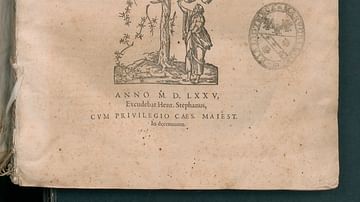
Definition
Arrian
Lucius Flavius Arrianus, commonly known as Arrian (86 - c. 160 CE) was a Greek historian, philosopher, and statesman from Nicomedia, capital of the Roman province of Bithynia. Arrian is recognized as one of the most renowned authors of the...

Article
Periplus of the Euxine Sea
The Periplus of the Euxine Sea (Circumnavigation of the Black Sea) is a description of trade routes along the shores of the Black Sea written by Arrian of Nicomedia (Lucius Flavius Arrianus), a historian and philosopher writing in the early...
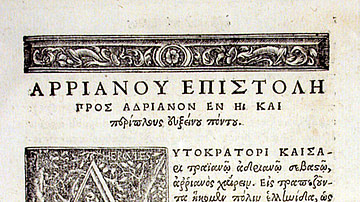
Image
Periplus of the Euxine Sea by Arrian
Beginning of the Periplus of the Euxine Sea by Arrian of Nicomedia, Johann Froben and Nicolaus Episcopius, Basel 1533. Basel University Library. The Periplus of the Euxine Sea (Latin: Periplus Ponti Euxini, Greek: Períplous toû Euxeínou...
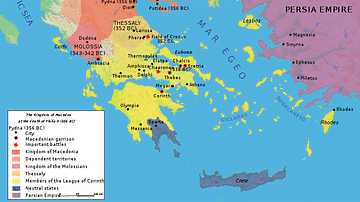
Article
The Hypaspists in Ancient Sources
Hypaspist translitterates the Greek term meaning shield-bearer, or armour-bearer (ὁ ὑπασπιστής). This noun is formed from the verb ὑπασπίζειν - to carry the shield for another; serve as a shieldbearer. The Shieldbearers of the Argead kings...

Definition
Epictetus
Epictetus (l.c. 50 - c. 130 CE) was a Stoic philosopher best known for his works The Enchiridion (the handbook) and his Discourses, both foundational works in Stoic philosophy and both thought to have been written down from his teachings...
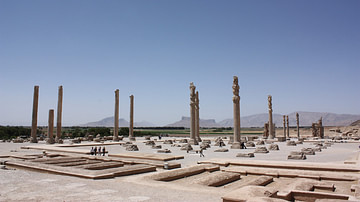
Article
Alexander the Great & the Burning of Persepolis
In the year 330 BCE Alexander the Great (l. 356-323 BCE) conquered the Achaemenid Persian Empire following his victory over the Persian Emperor Darius III (r. 336-330 BCE) at the Battle of Gaugamela in 331 BCE. After Darius III's defeat...
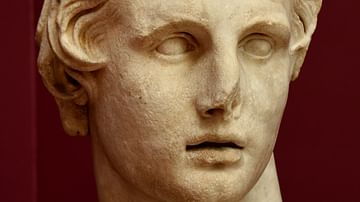
Article
The Hyphasis Mutiny
The so-called Hyphasis Mutiny was a conflict between Alexander the Great (356-323 BCE) and his army following their victory at the river Hydaspes in 326 BCE. Alexander voiced plans for further conquests in the Indian subcontinent, however...
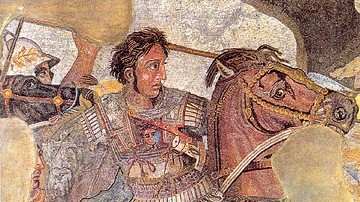
Definition
Alexander the Great
Alexander III of Macedon, better known as Alexander the Great (l. 21 July 356 BCE – 10 or 11 June 323 BCE, r. 336-323 BCE), was the son of King Philip II of Macedon (r. 359-336 BCE) who became king upon his father's death in 336 BCE and then...

Article
Death of Alexander the Great
In June of 323 BCE, Alexander the Great (r. 336-323 BCE) died in Babylon. His sudden death before his 33rd birthday has long been a point of speculation: was it disease, old wounds, or murder? Regardless of the cause, history ranks him as...
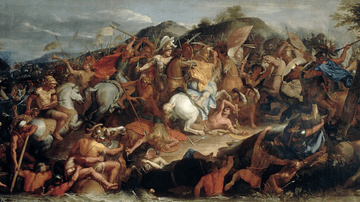
Definition
Battle of the Granicus
The Battle of the Granicus in May 334 BCE was Alexander the Great's (356-323 BCE) first major victory against the forces of the Achaemenid Empire. Alexander had crossed the Hellespont with his combined Macedonian and Greek forces and stepped...